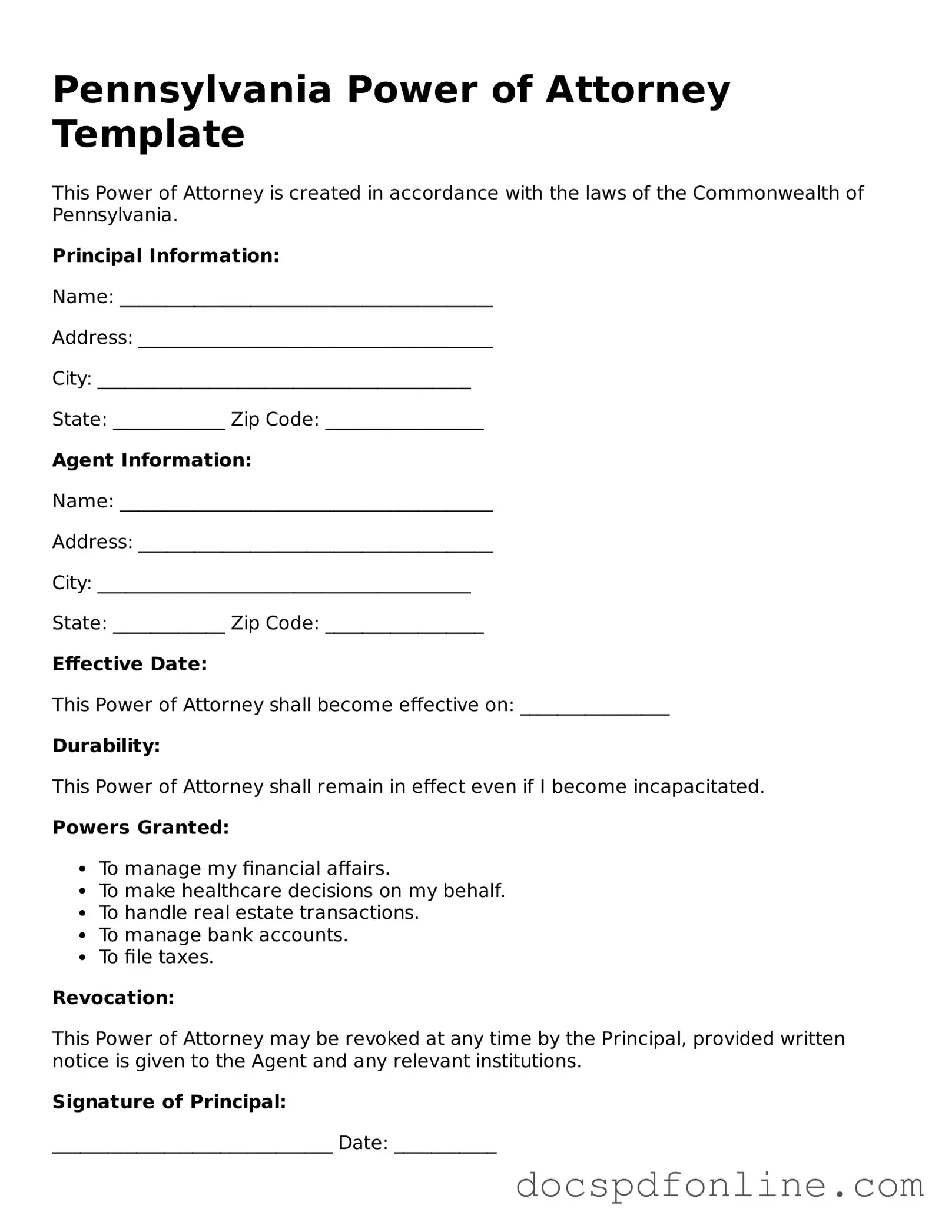Legal Power of Attorney Template for Pennsylvania
The Pennsylvania Power of Attorney form is a legal document that allows an individual, known as the principal, to grant another person, referred to as the agent, the authority to make decisions on their behalf. This form can cover a wide range of financial and health-related matters, ensuring that the principal's wishes are respected even if they become unable to communicate those wishes themselves. Understanding how this form works is essential for anyone considering its use in Pennsylvania.
Launch Editor Now

Legal Power of Attorney Template for Pennsylvania
Launch Editor Now
Save time — finish this form fast
Finish Power of Attorney online — edit, save, download made easy.
Launch Editor Now
or
↓ PDF File
